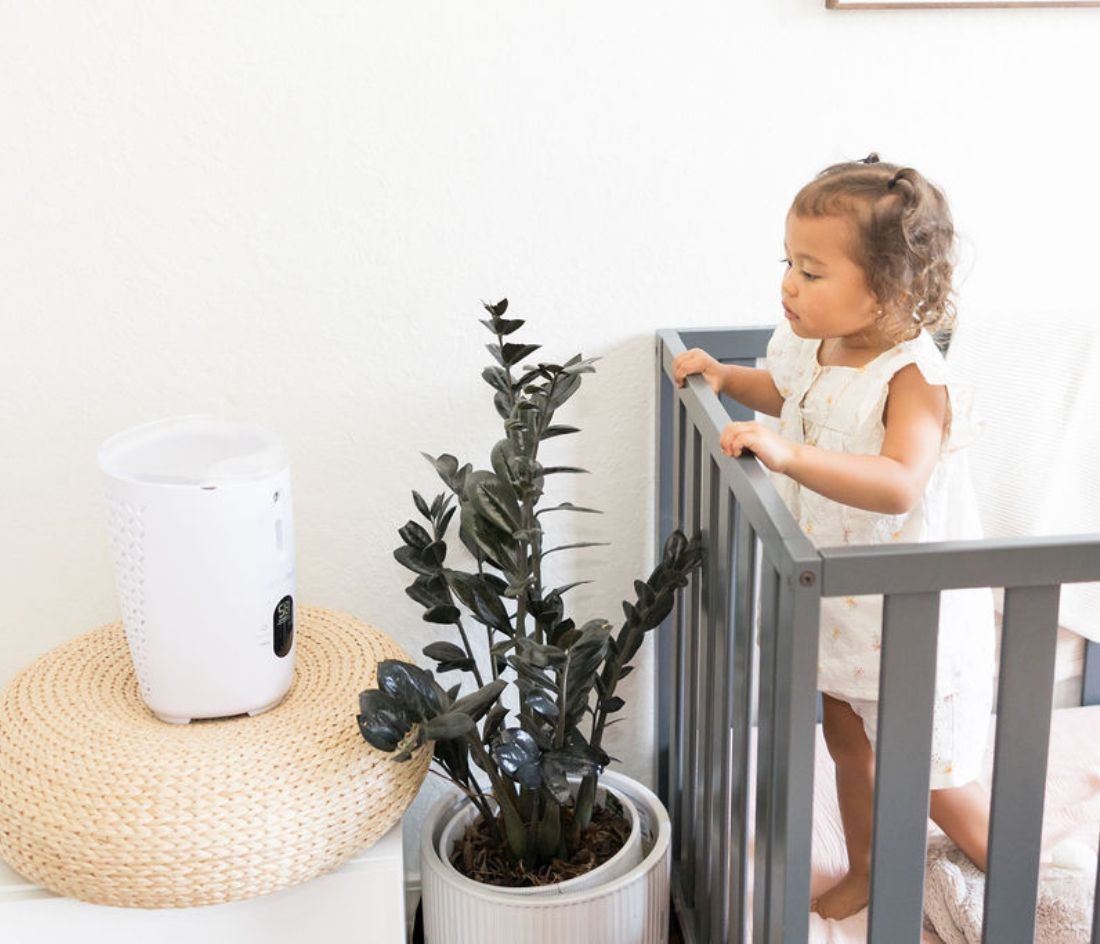Babies get a lot of colds. For some that means several times a year, and for babies in daycare, that can mean as often as once a month. All colds are caused by viruses and often start with a runny nose (summon the NozeBot!). From there, the development of a fever and cough is also very common.
If your baby has a cough that becomes more frequent and progresses into something that sounds a little bit like a dog or a seal barking, this may be croup. As a worried parent, you are probably wondering about the best treatment for croup and today we want to supply you with all the knowledge you need to care for your little one.

Treatment For Croup: What Parents Need to Know
Croup refers to an infection of the upper airway that obstructs breathing and causes a characteristic barking cough. For example, a viral infection such as the parainfluenza virus can cause swelling of the airway tissue just below the voice box, limiting airflow in or out of their breathing tube. The sounds of croup can range from a mild barky cough to severe noisy breathing with respiratory distress.
Symptoms of croup are typically worse at night and usually last for three to five days. While you should seek the advice of a pediatrician, croup usually isn't serious, and most children can be treated at home. If respiratory distress is not present, cool misting can be helpful in relieving the barky cough.
However, if your baby’s cough progresses from a barky cough to a high-pitched noise when breathing, the croup is worsening. This high-pitched noise means that their breathing tube is swollen and could lead to a severe narrowing of the airway.

It is a good idea to see your pediatrician if you suspect your child has croup. The doctor may recommend nasal saline, humidification, and/or oral steroids. Antibiotics are only prescribed if your pediatrician believes there is a bacterial infection as well, as most croup episodes are due to a viral infection.
To stave off more-serious infections, keep your child's vaccinations current. The diphtheria and Haemophilus influenza type b (Hib) vaccines in particular offer protection from some of the most dangerous, albeit rare, upper airway infections. There currently isn’t a vaccine that protects against parainfluenza viruses.

If you are still wondering about treatment for croup, please speak with your doctor. You should seek immediate medical attention if your child makes noisy, high-pitched breathing sounds when inhaling and exhaling, begins drooling or has difficulty swallowing, breathes faster than usual and/or struggles to breath, or seems fatigued and listless.
If you enjoyed this article, you will love our whole baby breathing basics series including these important topics:
And of course, if you enjoyed learning about treatment for croup, please sign up for our monthly email newsletter where we educated parents on various topics - but keep it fun! Join the list HERE!
All colds are caused by viruses and often start with a runny nose



